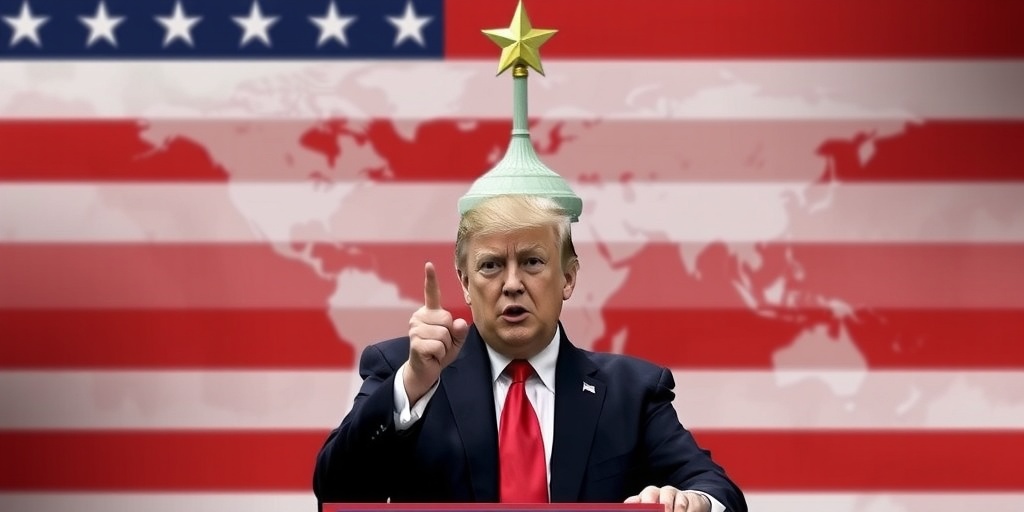Now Reading: Vance Sparks Controversy in UK with ‘Random Country’ Remark
-
01
Vance Sparks Controversy in UK with ‘Random Country’ Remark
Vance Sparks Controversy in UK with ‘Random Country’ Remark

Vice President JD Vance Faces Backlash in Britain Over Comments on Troop Commitments
Vice President JD Vance has ignited controversy in the United Kingdom following remarks he made during a Fox News interview with Sean Hannity. Vance suggested that an American economic deal in Ukraine serves as a "better security guarantee than 20,000 troops from some random country that hasn’t fought a war in 30 or 40 years." This statement has drawn significant criticism from various quarters in Britain, where political leaders and military officials have expressed their outrage.
As it stands, the UK and France are among the few nations that have committed troops to a peacekeeping force in Ukraine. This commitment comes in light of the ongoing conflict in the region, which has drawn international attention and raised concerns about stability. Both Britain and France have historical military engagements alongside the United States, particularly in Iraq and Afghanistan—conflicts that have shaped their current defense postures.
Vance later attempted to clarify his comments, asserting that he was not specifically targeting Britain or France in his statements, although he did not offer any alternatives or specify which countries he meant. His remarks, however, did not resonate well with many in Britain, even among those who might typically support American policies.
Prominent British political figure Nigel Farage, known for his anti-immigrant stance and as a longstanding ally of former President Trump, directly chastised Vance’s assertion. “JD Vance is wrong. Wrong, wrong, wrong,” he stated, emphasizing that the UK has consistently upheld its alliance with the United States over the past two decades, contributing significantly to joint military efforts.
The backlash against Vance’s comments was palpable across social media and news outlets, with The Sun—a major right-wing tabloid in the UK—branding the incident as “Vance Shame” on its homepage. High-profile figures within British politics also weighed in, underscoring the historical context of military alliances and sacrifices.
James Cartlidge, who serves as the shadow defense secretary for the Conservative Party, used social media to spotlight NATO’s Article 5, which asserts that an attack on one member state is considered an attack on all. He highlighted that this principle was only invoked by NATO once—following the September 11 attacks in 2001. Cartlidge reminded the public of the thousands of personnel from Britain and France who deployed to Afghanistan in response to that crisis, including numerous political colleagues, some of whom lost family members in the conflict. He called Vance’s comments “deeply disrespectful,” emphasizing the sacrifices made by British and French soldiers.
Beyond political responses, military representatives also criticized Vance for his insensitivity. Helen Maguire, a spokesperson for the Liberal Democratic Party and a former captain in Britain’s Royal Military Police, condemned his remarks, arguing that they diminish the memory of the hundreds of British troops who lost their lives in Iraq and Afghanistan.
Moreover, France’s Defense Minister, Sébastien Lecornu, also addressed the situation, asserting that Vance had "fortunately corrected his statement." Lecornu lamented the loss of approximately 600 French soldiers over the past 60 years, stating that their service and sacrifice deserve mutual respect from allies.
In a somewhat contrasting viewpoint, Kemi Badenoch, the leader of Britain’s Conservative Party, sought to downplay the controversy. She suggested that there may have been an overreaction to Vance’s comments and indicated that she does not believe he was specifically referring to Britain as a "random country." Badenoch stated during an appearance on GB News, "A lot of people are getting carried away…They’re saying loads of things and getting quite animated."
As the diplomatic fallout continues, this incident reflects the complexities of international relations and military commitments among NATO allies. It raises vital questions about the importance of mutual respect, recognition of sacrifices made by armed forces, and the credibility of statements made by leaders in times of geopolitical tension. The dialogue surrounding Vance’s remarks illustrates not only the sensitivities tied to military engagements but also the intricate web of political alliances that shape global security strategies.
The controversy serves as a reminder of the need for careful communication among nations and the understanding that words can carry heavy implications, especially in the context of historical sacrifices and alliances in defense of shared values.
Stay Informed With the Latest & Most Important News
Previous Post
Next Post
-
 01New technology breakthrough has everyone talking right now
01New technology breakthrough has everyone talking right now -
 02Unbelievable life hack everyone needs to try today
02Unbelievable life hack everyone needs to try today -
 03Fascinating discovery found buried deep beneath the ocean
03Fascinating discovery found buried deep beneath the ocean -
 04Man invents genius device that solves everyday problems
04Man invents genius device that solves everyday problems -
 05Shocking discovery that changes what we know forever
05Shocking discovery that changes what we know forever -
 06Internet goes wild over celebrity’s unexpected fashion choice
06Internet goes wild over celebrity’s unexpected fashion choice -
 07Rare animal sighting stuns scientists and wildlife lovers
07Rare animal sighting stuns scientists and wildlife lovers




















